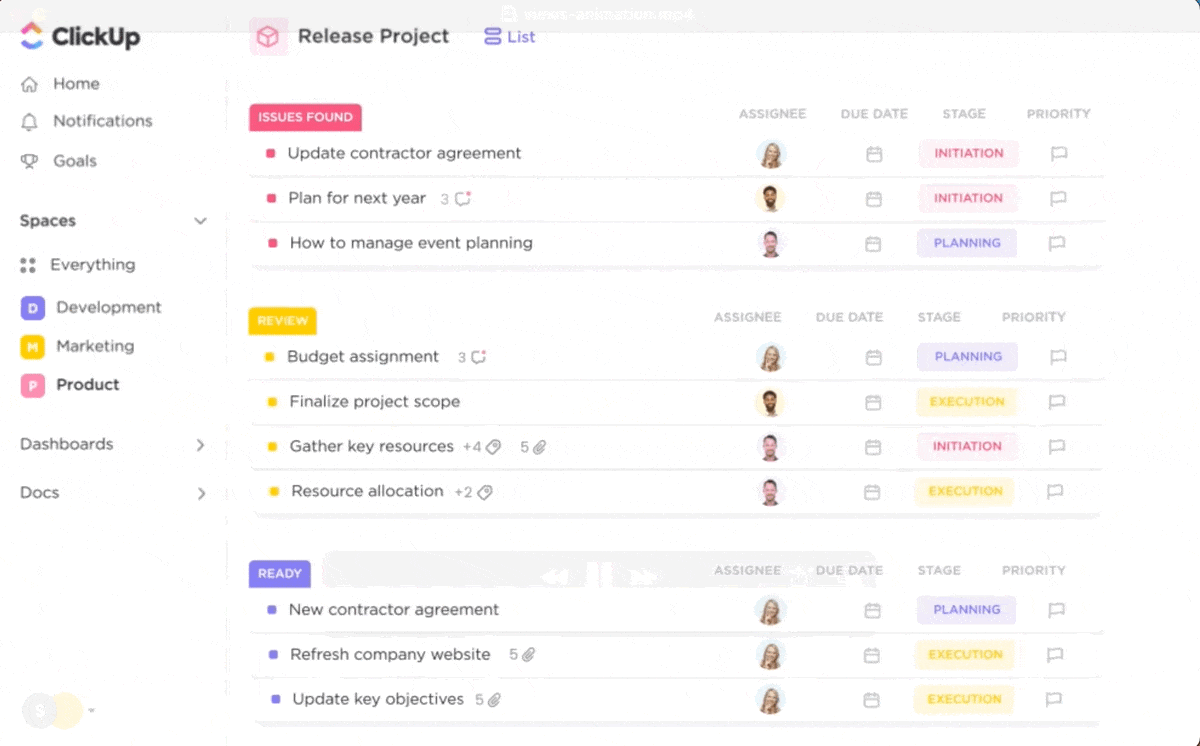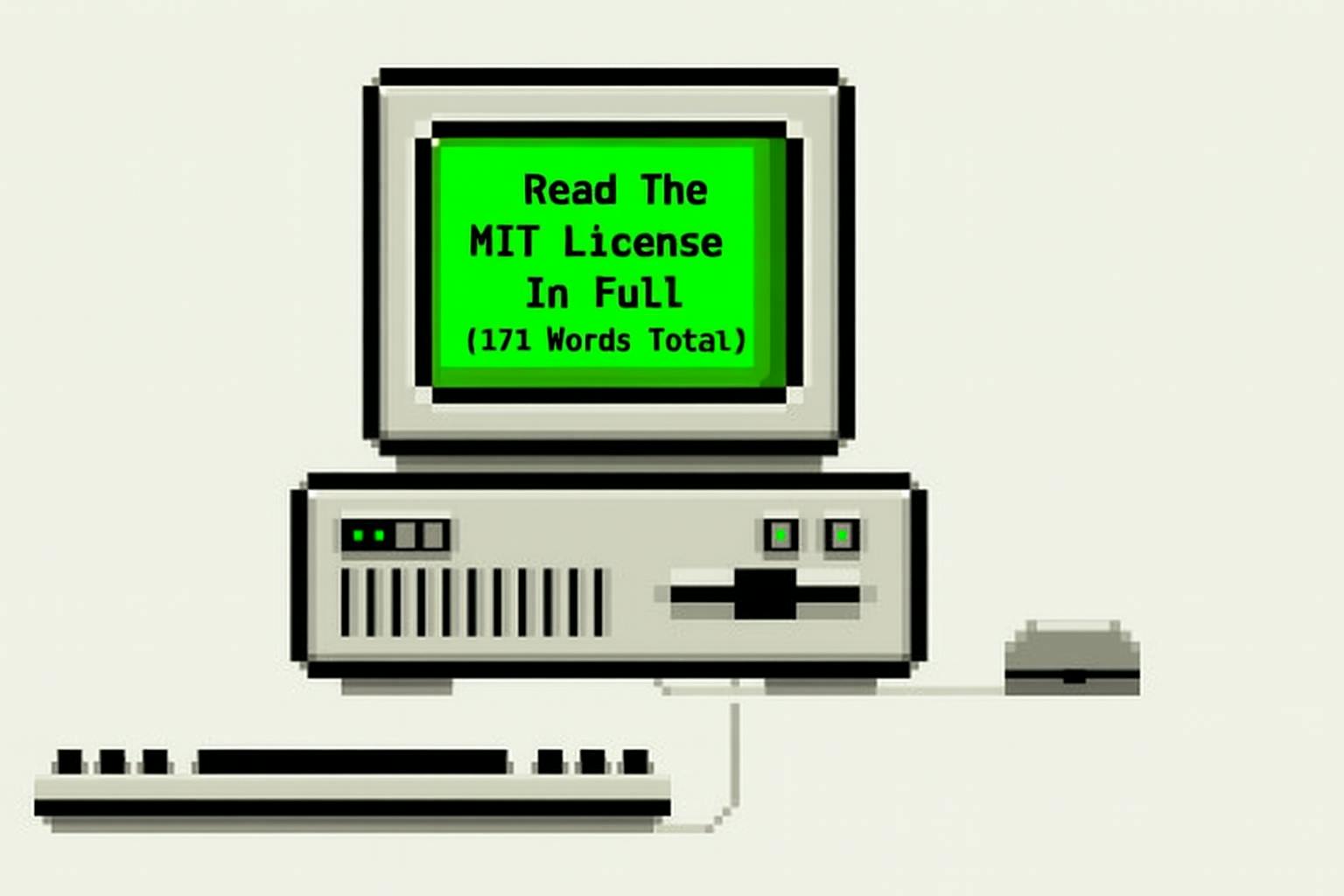Looking to understand what project managers actually do all day? Let us break it down for you.
Project managers are essentially the people who make sure that when a company says, “We’re going to build this thing by this date,” it actually happens. They’re part coach, part referee, part problem-solver, and occasionally part therapist for frustrated team members!
As a project manager, you’ll be at the helm, guiding teams through every stage of a project, ensuring everything runs smoothly from start to finish.
Let’s dissect the project management job description to answer all your burning questions. What skills are required to become a successful project manager? How does one become a project manager?
So, let’s get started!
⏰ 60-Second Summary
- A project manager oversees projects from start to finish, ensuring deadlines, budgets, and project goals are met
- The key responsibilities of a project manager include project planning and strategy, team leadership and coordination, budget and resource management, risk management, and performance tracking and reporting
- The skills required for a project manager include:
- Leadership and communication
- Time management and organization
- Problem-solving and critical thinking
- Technical and software proficiency
- Risk assessment and decision-making
- To become a project manager, you must get the right education, obtain work experience, master your skills, and gain proficiency in tools like to make project management smart and seamless
Project Manager Job Description: Key Responsibilities and Skills Required
Who is a Project Manager?
A project manager orchestrates a project lifecycle, meeting goals on time, within scope, and budget.
They are responsible for planning, executing, and closing projects. At the same time, they coordinate with the project team, anticipate and manage risks, solve problems, optimize resource allocation and usage, and monitor project progress. Whether they spearhead a marketing campaign or construction projects, they guide the team as the project moves from initiation and planning to execution and completion.
That’s on the internal side of things. The project manager works with external stakeholders as well, sharing project updates and ensuring that the project deliverables align with expectations. Once everything is up to code, they help with the seamless project handover to the owners.
🔎 Did You Know? In the United States of America, a project manager’s salary averages $98,580 per year!
Why is a Project Manager important?
Have you ever wondered why some teams consistently hit deadlines while others scramble through endless bottlenecks? The difference often comes down to one crucial role: the project manager.
Excellent project managers are productivity champions who transform scattered tasks into structured workflows, ensuring every team member knows exactly what needs to happen and when. They’re the strategic navigators who prevent scope creep, resource conflicts, and communication breakdowns before they derail your progress and hamper project performance.
Beyond tracking timelines, skilled project managers create accountability systems that motivate teams to deliver their best work. They translate complex client requirements into actionable steps, making the impossible possible.
Key Responsibilities of a Project Manager
The above description reveals that a project management professional wears multiple hats. These hats are also subject to the project manager’s job description, industry, company, and project nature.
However, the key project manager responsibilities remain the same: strategic planning, team coordination, risk management, budgeting, performance tracking, and more.
Here are some critical project management responsibilities that illustrate a project manager’s day-to-day duties:
1. Project management planning and strategy
A successful project rests on the foundations of a well-defined plan. This is where the project management professional steps in as the strategic planner. They set clear project objectives, define the project scope, and establish realistic timelines for smooth execution.
While doing this, they prepare detailed roadmaps to align team efforts with project goals and manage stakeholder expectations. Without such a structured framework, the project may suffer from scope creep, missed deadlines, and budget overruns.

, the everyday app for work, has a comprehensive Project Management feature that unifies projects, documents, and communication in one workspace, eliminating the chaos of multiple tools.
Moreover, the AI-powered Brain capabilities automate routine tasks, generate summaries, and capture action items from conversations, keeping projects moving without the busywork.
Check out how you can streamline project management with Brain👇
📮 Insight: 62% of our respondents rely on conversational AI tools like ChatGPT and Claude. Their familiar chatbot interface and versatile abilities—to generate content, analyze data, and more—could be why they’re so popular across diverse roles and industries.
However, if a user has to switch to another tab to ask the AI a question every time, the associated toggle tax and context-switching costs add up over time.
Not with Brain, though. It lives right in your Workspace, knows what you’re working on, can understand plain text prompts, and gives you highly relevant answers to your tasks! Experience 2x improvement in productivity with !
An experienced project manager uses templates at this stage to ensure that everything is accounted for. Tools like the Project Plan Template by make organizing tasks, milestones, and deadlines easier. This detailed project plan template offers:
- Define project scope, objectives, and key deliverables with a pre-built structure
- Set practical deadlines with timeline management
- Address urgent tasks first with task prioritization
- Collaborate seamlessly using built-in tools
💡 Pro Tip: Always define the project scope and goal upfront—scope creep is the leading cause of project failure!
2. Team leadership and coordination
The project manager is the team leader. As such, you will often find them heavily involved in team management activities. They will assign tasks to the project team, balance workloads, set up cross-functional collaboration, and more. At the same time, they also inspire, motivate, and engage the project team to bring their A-game.
Strong leadership maintains accountability, fosters collaboration, and helps resolve conflict.
complements project management skills in this sphere through its assortment of features. One feature is the Tasks feature, which helps assign tasks, set priorities, and monitor project progress through individual tasks.


’s Instant and Live Collaboration Detection transforms how your team works together. You can see teammates typing in real time, watch task descriptions evolve as they’re edited, and receive immediate updates across all platforms.
Plus, automatic status change notifications and instant comment visibility ensure nothing falls through the cracks. Thus, experience hassle-free collaboration with , where everyone stays in perfect sync no matter where they work.


Finally, project managers can use Team Management to effectively organize workflows and monitor workloads. Such features make it easier for the project manager to assume the role of a project coordinator.
3. Budget and resource management
Staying within the project budget is one of the top requirements in a project manager job description. For this reason, project management skills for resource allocation, cost control, and optimum utilization of existing assets are crucial. A good project manager continuously monitors the project to prevent budget overruns.


’s Resource Management feature supports project managers in allocating, tracking, and optimizing team workloads. The time-tracking and workload views keep the project within budget while maximizing productivity.
As a result, gaining visibility into resource availability and task priority and assigning tasks based on capacity and workload prevents burnout and bottlenecks that could delay project timelines.
4. Risk management
A good project manager understands that project risks are unavoidable. Thus, every project manager’s job description also includes effective risk management.
Project managers strive to identify potential risks early and prepare detailed contingency plans to mitigate them. Even minor obstacles quickly escalate into critical project disruptions without such proactive risk management.
The Risk Management Risk Register Template is an essential tool that helps with risk control. It offers a structured framework for risk identification, assessment, and neutralization in the following ways:
- Support risk identification and categorization
- Assign risk owners to maintain accountability and minimize project risks
- Track risk mitigation strategies and updates in real-time
- Power-informed decision-making via a risk assessment matrix
🔎 Did You Know? NASA used project management methodologies like the Work Breakdown Structure (WBS) to land astronauts on the Moon during the Apollo missions successfully!
5. Performance tracking and reporting
Performance tracking and reporting are integral parts of project manager skills. After all, measuring project progress is just as vital as the execution itself!
Project managers must monitor key performance indicators (KPIs), analyze project performance, and generate reports to keep stakeholders informed. This keeps teams productive and aligns with project objectives.


Dashboards is a single-stop destination for tracking project progress. It offers real-time, data-driven insights and visual reports that fuel the project manager’s decision-making capabilities. The project manager may customize Dashboards to track specific KPIs and automate updates to keep stakeholders informed.
6. Stakeholder communication and management
The project manager’s role as an informant is an immensely crucial yet often overlooked aspect of project management. This is why stakeholder communication and management should feature in an ideal project manager job description.
Project managers are required to share updates, address concerns, and manage expectations with internal and external stakeholders, including clients, project owners, executives, upper management, and project teams. Strong communication prevents misunderstandings, prevents scope creep, and ensures that everyone on the team works toward the same objectives.


Chat simplifies communication between key stakeholders by consolidating different communication channels. Whether sharing instant updates or collecting feedback, Forms converts responses into results, while Chat allows users to interact via real-time chat, comments, and @mentions.
💡 Pro Tip: Regular stakeholder check-ins help prevent misalignment, keeping key stakeholders informed to avoid last-minute surprises.
7. Documentation and compliance
Project managers are responsible for documenting requirements and the entire project lifecycle, from planning to execution. This running record of project management experience helps them with future projects by allowing them to reflect on strengths, weaknesses, and challenges.
Hence, tracking compliance documents and meeting regulatory standards is vital to a project manager’s job description.


Docs is a one-stop repository for all your documentation needs. It helps project managers store and manage documents in a centralized location. Your project team can collaboratively create, edit, and share such documents in real time, making information readily accessible to all those involved.
Required Skills for a Project Manager


Now that you understand the key responsibilities attached to the project management job title, let’s look at the skills required for a fulfilling career in project management. Here’s an overview:
Leadership and communication
Project management is a leadership role. The project manager leads team meetings, delegates tasks, and facilitates smooth collaboration. At the same time, they inspire and motivate project teams, resolve conflicts, and keep everyone focused on the goal.
Such leadership skills go hand-in-hand with effective communication. The project manager’s spoken and written communication skills will be perpetually tested. Whether they’re relaying information to stakeholders, managing client relationships, or setting team expectations, everything hinges on communication.
Risk assessment and decision-making
As we’ve mentioned, risk is an inherent part of project management. You need the skills to minimize its threat and impact. For this reason, the project manager should possess the skills to identify potential risks before they escalate.
This pairs well with astute decision-making as they evaluate possible project management challenges, conduct impact assessments, and implement proactive solutions. Decision-making also comes in handy when things go awry despite their best intentions. During such crises, the project manager will have to prioritize/deprioritize tasks, reallocate resources, and adjust project plans on the fly.
Check out this video on how to manage multiple projects as a project manager:
Time management and organization
Time management and organization are critical skills featured in every project manager’s job description. Ultimately, juggling various tasks, deadlines, and priorities is a project manager’s daily duty.
Effective time management ensures project completion as per a planned schedule. For this, the project manager must account for individual deadlines for project tasks and work their way up. Organizational skills help line up these tasks in the most efficient path, making it easier to reach project milestones without any delays due to dependencies.
Problem-solving and critical thinking
Not all projects go as planned, especially when managing complex projects. Unexpected challenges, changing priorities, scope creep, and roadblocks easily derail a project. However, project management is all about solving problems. This is why the project manager should have the skills to think critically, analyze situations, and develop solutions as needed.
Fortunately, the advancements of AI in project management present us with several tools that strengthen these skills. With readily ingestible data, project managers will find it easier to make informed decisions and solve problems more objectively.
Technical and software proficiency
Project managers should have technical know-how with project management tools like , Trello, or Asana. Working knowledge and experience with project management software are non-negotiable in any project manager job description. These tools are pivotal in streamlining workflows, assigning project tasks, and monitoring progress toward completion.
We’ve already seen above how using for Project Management makes it easier for a project management professional to manage client expectations. So why would anyone have it otherwise?
Here’s what Kaylee Hatch, Brand Manager at Home Care Pulse, had to say about using for project management:
In addition to the key skills mentioned, a project manager must possess strong negotiation abilities and conflict resolution skills. They should also be adaptable to changes and excel in stress management to navigate the challenges that arise during a project’s lifecycle.
🧠 Fun Fact: The Empire State Building was built in 410 days—an impressive feat of project management at a time when skyscrapers took years to complete!
How to Become a Project Manager?
Whether starting a career in project management or transitioning from another role, the journey of becoming a project manager is quite rewarding. Although the path to a project management career varies depending on your background and industry, going through the following steps helps:
1. Get the right education
While there are no specific project manager qualifications, most successful project managers hold a degree in business administration, engineering, IT, or a related field. Some employers prefer candidates possessing specialized project management certification or training, some of which include:
- Project Management Professional (PMP): This is a globally recognized project management course offered by the Project Management Institute
- Certified Associate in Project Management (CAPM): This is an entry-level project management certification offered by the Project Management Institute, which is suitable for beginners
- Scrum Master Certification: This project management certification is ideal for those interested in Agile project management
- PRINCE2 Certification: This project management certification is popular in Europe and best suited for structured project environments
2. Gain relevant work experience
Next, to land a formal job in the project management field, you must acquire experience as a project manager. Several professionals start as team leads, coordinators, and analysts before transitioning into full-time project managers.
You could gain experience in the following ways:
- Volunteer to manage a small project or project budget within your existing job role
- Assist senior project managers in planning and implementing projects
- Take on roles that involve scheduling, budgeting, stakeholder communication, etc.
- Join cross-functional teams to gain hands-on exposure to project workflows
3. Hone your project management skills
Successful project management goes beyond certification and experience—you need a well-rounded skill set. Work on improving your project management skills, focusing on developing leadership, communication, time management, risk assessment, and other aspects of project management.
Also, take the time to master project management platforms like to improve your chances of securing a project management role.
To master project management practices, you may:
- Practice real-world project management using tools like , Trello, or Asana
- Learn Agile, Scrum, or any other project management framework
- Enhance your ability to handle stakeholder expectations and team coordination
4. Craft a strong resume
Find ways to differentiate yourself once you fulfill the project manager’s requirements. A good way to do this would be through a well-crafted resume and project manager cover letter. Your application should highlight relevant experience, certifications, and key achievements to showcase your ability to manage projects effectively.
Here are some tips for writing a standout cover letter:
- Emphasize problem-solving abilities and leadership experience
- Showcase successful outcomes in past projects
- Highlight any certifications or tools you’re proficient in
- Keep it concise, professional, and tailored to the project manager’s job description
5. Get started with entry-level roles
Now that you’ve done all the groundwork, it’s time to enter the job market. Start small by applying for roles like:
- Project Coordinator: Supports project managers with project plans and execution
- Assistant Project Manager: Manages small-scale projects under supervision ranging from software to construction management
- Business Analyst: Works on process improvements and project documentation
- Operations Coordinator: Helps with resource allocation and workflow management
These roles will help you build foundational skills and advance to senior positions.
6. Network with industry professionals
Networking with industry professionals often opens doors to job opportunities, mentorship, and professional growth. Engage with experienced project managers through industry events, LinkedIn groups, and professional associations like the Project Management Institute. Other ways to network include:
- Attending workshops, conferences, and webinars on project management
- Joining online forums, job sites, and communities dedicated to project managers
- Connecting with industry professionals on LinkedIn and seeking mentorship
Project management roles require a blend of leadership, organization, and problem-solving to keep up with the ever-evolving complexities of project execution. Mastering key skills like communication, time management, risk assessment, and software proficiency can set you up for success in this field. You must gain relevant experience, obtain certifications, and learn project management tools for a successful career.
Speaking of project management tools, what better starting point than ? This everyday app for work bundles several features that make project management easy. From managing dependencies to optimizing resource allocation, offers everything you need to plan, execute, and deliver successful projects.
Ready to up your project management game? Sign up for today! ✨


Everything you need to stay organized and get work done.













